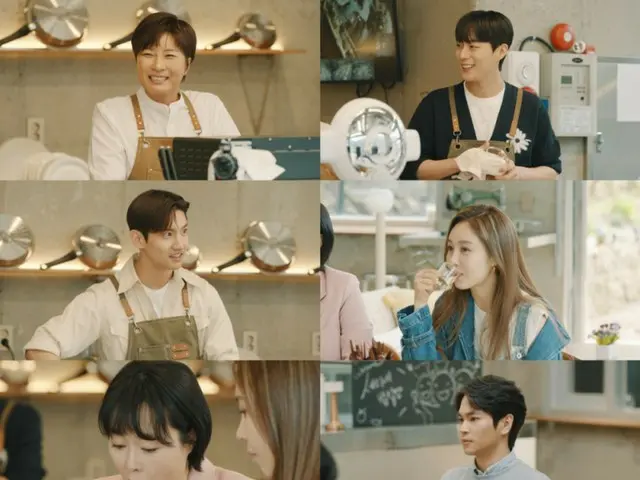 |
In Korea, as you can see from watching TV series and movies, women are portrayed proactively as the main characters. Last year's big hit, "SKY Castle: Housewives of the Upper Class," depicts a fierce competition between women to get their children into elite universities. The existence of women is prominently depicted, such as the rescue development "Sassy Girl" (a pioneering work of Korean movies that became hits in Japan) and the queen who fights with the staff (male) in the history TV series and engages in power struggle. .
This is not only in the world of fiction, but also in the real world, where women play an important role. At a certain airline where I worked, the wives of the department manager would sometimes get together to exchange information about the company in order to help her husband get ahead, and during the season of personnel changes, she would go out of her way to win over the influential wife of the executive. It was a common occurrence to make extra deliveries.
Also, during exam season, there are rumors within the company about which university a child has entered. I had a narrow mind. Therefore, for the sake of her husband's reputation, the fierce entrance examination competition between wives, as depicted in the TV series, is still unfolding. (Supplement: Everyone! In Japan, people don't make private matters hot topics at work!?)
Let's take a look at the factors that have made Korean women so tough and strong from history. The first is Hideyoshi's Bunroku-Keicho War in the middle of the Joseon Dynasty ("Imjin War" in Korea), Qing's invasion (Heijigoran), Japanese rule, and the Korean War (Korean War).
War kills people, especially vulnerable women and children. Men are sent to war, and it is unarmed women who protect their families and themselves from the enemy in the rear. In accordance with the spirit of Confucianism, the Joseon Dynasty believed that women should serve their fathers at a young age, their husbands after marriage, and their children (to men) as virtues, and honored women who were virtuous and loyal. .
However, Hideyoshi's invasion of Korea (1592-8) brought this ethics to the ground. Since Japanese soldiers trampled many women, the treatment of women who were humiliated after the war became a social problem. Even during the war, there were so many women who violated the moral code of the time, which emphasized chastity, that the king was forced to issue an indulgence to the women against the objections of his vassals.
About 40 years later, a similar situation occurred. During the Qing invasion (1636), many women were taken to the Qing Dynasty and were trafficked or trampled. What I got was an unreasonable accusation of why I didn't keep my chastity.
There were so many women who felt inferior that they committed suicide or were divorced. Declared. But the reality was hardly accepted. At this time, the woman who returned to the country was called 'Fany Yang Nyo / Returning Woman' and is still used as a pronoun for a woman who does not protect Misao.
And under Japanese rule, there was a military comfort women system. On a personal note, my mother got married at the age of 17 as soon as she thought she wouldn't be forced out if she was married.
Not only the invasion of foreign nations, but also the tragedy of the Korean War, which is a tribal conflict, has befallen vulnerable women and children even in modern times. Such repeated wars must have strengthened the women of this country. It is only natural to try to acquire the spirit and the means to help oneself without relying on men who are usually arrogant and rotten but cannot protect women and children in an emergency.
In addition to this historical DNA, right-left conflict, ethnic division, political turmoil (dictatorship, coup d'etat, democratic revolution, etc.), economic crisis (IMF management system), rapid inflation, fierce entrance exam wars, etc. In order to deal with the situation, if you keep building a small family with your husband's salary and build it steadily, you will not only miss the competition, but also fall behind. This time-space environment has given Korean women the strength and vitality to live.
Let's take a familiar story as an example and introduce a part of the toughness of Korean women. The place is Akasaka, Tokyo, where Korean clubs are crowded, and the time is around 2000 AD.
My friend's friend A loves Korean clubs, and after spending 100 million yen as a hostess, she is betrayed. I swear that I will never go in and out of Akasaka again. However, after half a year, I miss Muzumuzu Akasaka. A said, "If you don't get too deep into clubs, there shouldn't be a problem," he persuaded himself, and went to Akasaka again.
However, at the famous Korean club in Akasaka, A has a price list of 100 million yen on his back, so he desperately tries to persuade A by using various means, but A is discouraged by the hotness and does not touch, and 3 One day after months have passed, I come across my favorite type of Chimama.
A petite woman around 30. While visiting several times, the Chimama often invites me to eat after closing, but I refuse. However, one day. The return will be together and send it to the house. She recommends that I go up to thank her for sending me a cup of coffee. I went up to the apartment thinking that it wouldn't matter if it was just a cup of coffee. However, instead of making coffee, isn't she taking a shower?!
I handed over 300,000, three times the market price, not to get too deep into it. She got angry and took the money with her hand, saying, "I didn't do it for the money," with a tearful face. A is impressed that this child did not approach him because he wanted money. and the relationship continues. After a while, he was pestered with "because the apartment is old", and "because the parents of the country will have surgery". The end.
Although not her, there is also an excellent person who made a lot of money in Japan and built a building in a prime location in Seoul...
* Contributed by Gon Yong-dae, representative of the Korea-Japan Temperament Comparison Study Group. Graduated from the Department of History, Seoul University, and completed the Graduate School of Newspapers at the same university. Worked at the Korean Air Training Center. Worked as Asiana Airlines' Japan and China managers. Author of "Do you really know 'Korea'?"
2023/03/01 12:58 KST


